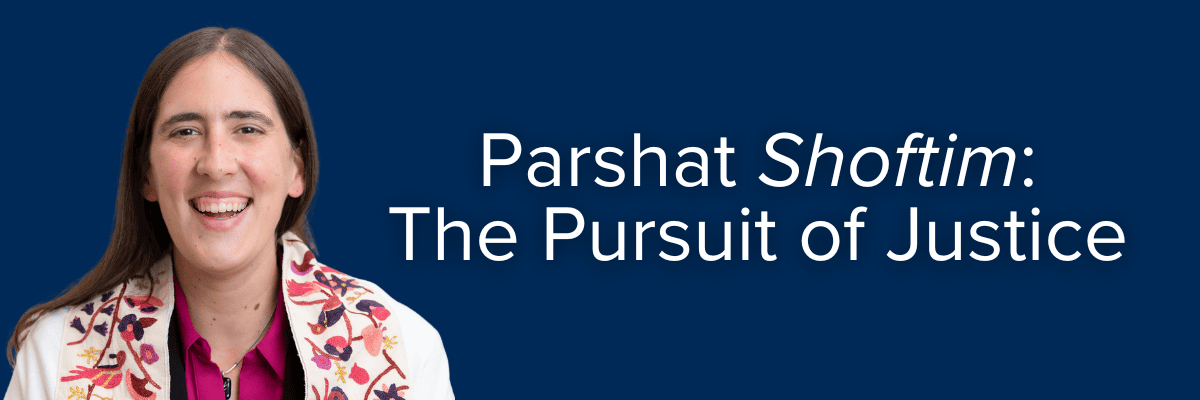In early August, I traveled to Tel Aviv, as a participant in a week-long seminar for American clergy. Primarily, we were there to meet with and learn from our counterparts in the Israeli Reform Movement, and to meet with a wide variety of people in Israeli society engaged in peacebuilding and pro-democracy work.
It was a powerful week (which I will not do justice to in this short d’var, but would love to talk about with you at greater length!), and one of my biggest takeaways was something that a number of the people who met with us said to us, which was some version of: please let your communities know that we are here. Please let them know that we are in Israeli society, doing this work of trying to build a better future, where the hostages are home and the war is over and people in Gaza and Israel and the West Bank have safety, security, and food. A future in which democracy, pluralism, and human rights are thriving, in which no kids are running to bomb shelters, and in which everyone has what they need.
In times of profound injustice, it can be difficult to maintain one’s hopes for or beliefs in positive change. “Hope” was one of the themes that many of the people we met with spoke about, and they ranged from sharing concrete sources of hope to a simpler sentiment: what we feel or believe about the future is not the point, one person said. What we do about the present and the future is.
I have been carrying these words with me over the past few weeks, as they apply to life in Israel, and as they apply to life here in the U.S. too, and more specifically here in the DMV. What does it mean to look at our world, and our local reality, and ask what we can do next?
This week’s Torah portion, Shoftim (which means “judges”), contains one of the Torah’s all-time greatest instructions for action: tzedek, tzedek tirdof. Justice, justice, shall you pursue. It comes as part of a longer conversation about how communities should govern themselves, and how their leaders should act:
“Give yourself (i.e., appoint) judges and officials in all of your gates (i.e., in all of your cities and towns) … and they shall govern the people justly. Do not bend the law, or show partiality: do not take bribes, because bribes blind the eyes of the wise, and distort the words of the righteous. Justice, justice, shall you pursue, so that you might live and thrive in the land that Adonai your God is giving you …” (Deuteronomy 16:18-20).
Reading these words in a time like ours feels poignant, because they delineate an ideal that is quite far away. And yet they also feel hopeful. I think part of what we can take from them is that injustice is a very ancient problem, but the pursuit of justice is also a very ancient quest. And, whether you are planning an ideal society (which is how the book of Deuteronomy presents itself) or trying to reform your existing society (which is what some Bible scholars theorize about Deuteronomy, that it could contain critiques of Ancient Israelite society set in the times of Moses and the wilderness wanderings for greater effect), naming your values aloud, and trying to live by them – even, or maybe especially, when people in power are not doing the same – can be a powerful act.
May we all find ways to pursue justice, and to join with others who are doing the same.
Shabbat Shalom,
Rabbi Alexandra Stein


